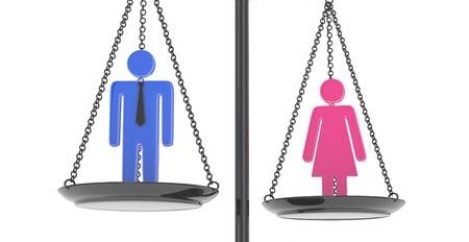March 23, 2017
Employers blame gender pay gap on career breaks and part-time work 0

Over a quarter (29 percent) of senior managers within UK enterprises do not see the gender pay gap as an issue for businesses and many believe the gap is partly due to women’s personal career decisions, a new survey claims. Research by NGA Human Resources (NGA HR) found that despite the UK gender pay gap sitting at 13.9 percent, only 17 percent of decision makers surveyed believe that regulations on gender splits will reduce the divide. Nearly half (49 percent) of senior leaders in businesses blame the disparity on the fact that women are more likely to take career breaks or work part-time (42 percent) as the main factors for pay disparities. Other reasons given for the gender pay gap are the lack of representation of women in the overall workforce (20 percent) and fewer women in senior management positions (27 percent).
Those that do recognise the gender pay gap as an issue believe the external effects on an organisation create the biggest problems – these include bad publicity (40 percent), brand damage (34 percent) and recruitment obstacles (33 percent). Challenges such as retaining staff (26 percent) and pay rise demands (20 percent) are viewed as secondary issues for businesses.
Although firms are required to report on pay gaps from next month, the research indicates this might not prove as successful as hoped. Indeed, 20 percent of organisations will not be ready to disclose their data on time, let alone review remuneration packages as a result.
To combat the gender pay gap, pay levelling is unsurprisingly seen as the number one solution (57 percent). However, in line with the reasons highlighted for the gap, there is also significant support for back-to-work schemes (49 percent) and positive recruitment programmes, such as the Government’s budget funding for ‘returnships’ (47 percent).
“It is cause for concern that a significant proportion of business leaders still do not take the gender pay gap seriously. Whilst compulsory reporting is imminent, progress towards closing the gap will only be made if firms are prepared to put in place meaningful programmes. The Government’s recent funding for ‘returnships’ is a step in the right direction, yet it is up to individual businesses to develop them if the pay gap is to be reduced for good. By addressing their pay gap, organisations will not just have good figures to report on paper, but the commercial benefits of a diverse and fairly remunerated workforce, improving performance, productivity and profitability”, said Geoff Pearce, Managing Consultant – Reward at NGA HR.
Other findings from the research include:
- Men in senior positions are much less likely to see the gender pay gap as an issue than women – a third of men (35 percent) compared to a fifth of women (22 percent)
- Men are also twice as likely than women to think a gender pay gap plan isn’t necessary – 14 percent compared with 7 percent of women
- Whilst the Government is bringing in gender pay gap reporting on 6th April, a fifth of firms (20 percent) will not be ready to start reporting from this date
For more information on the research click here.













